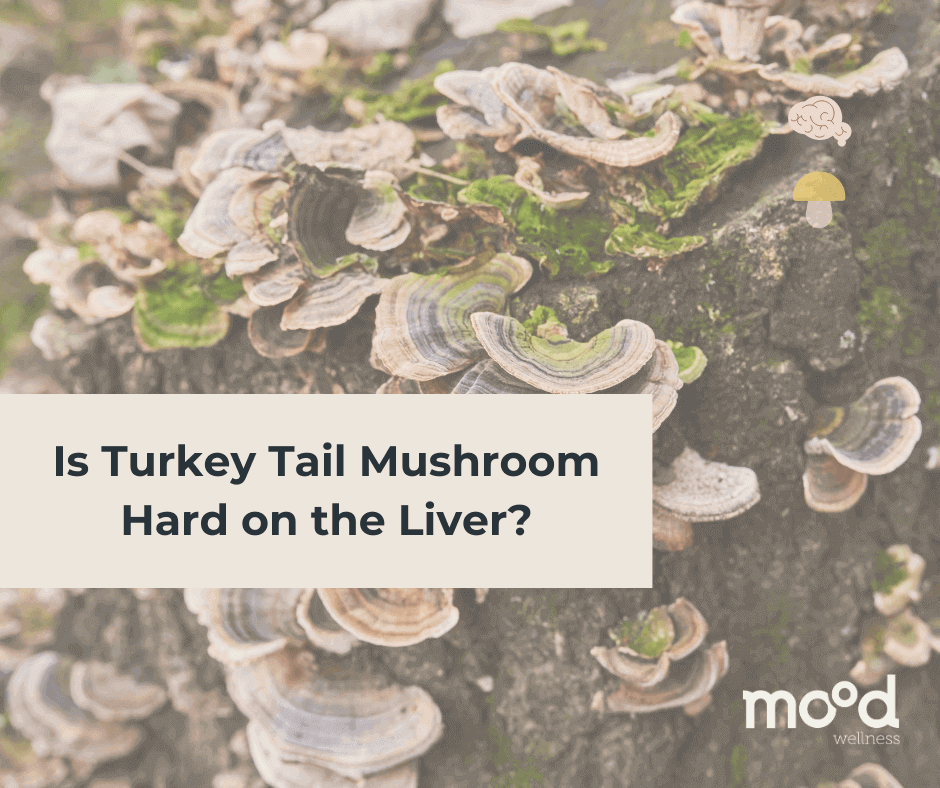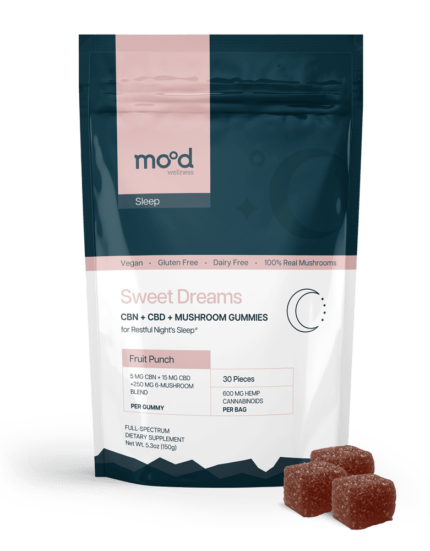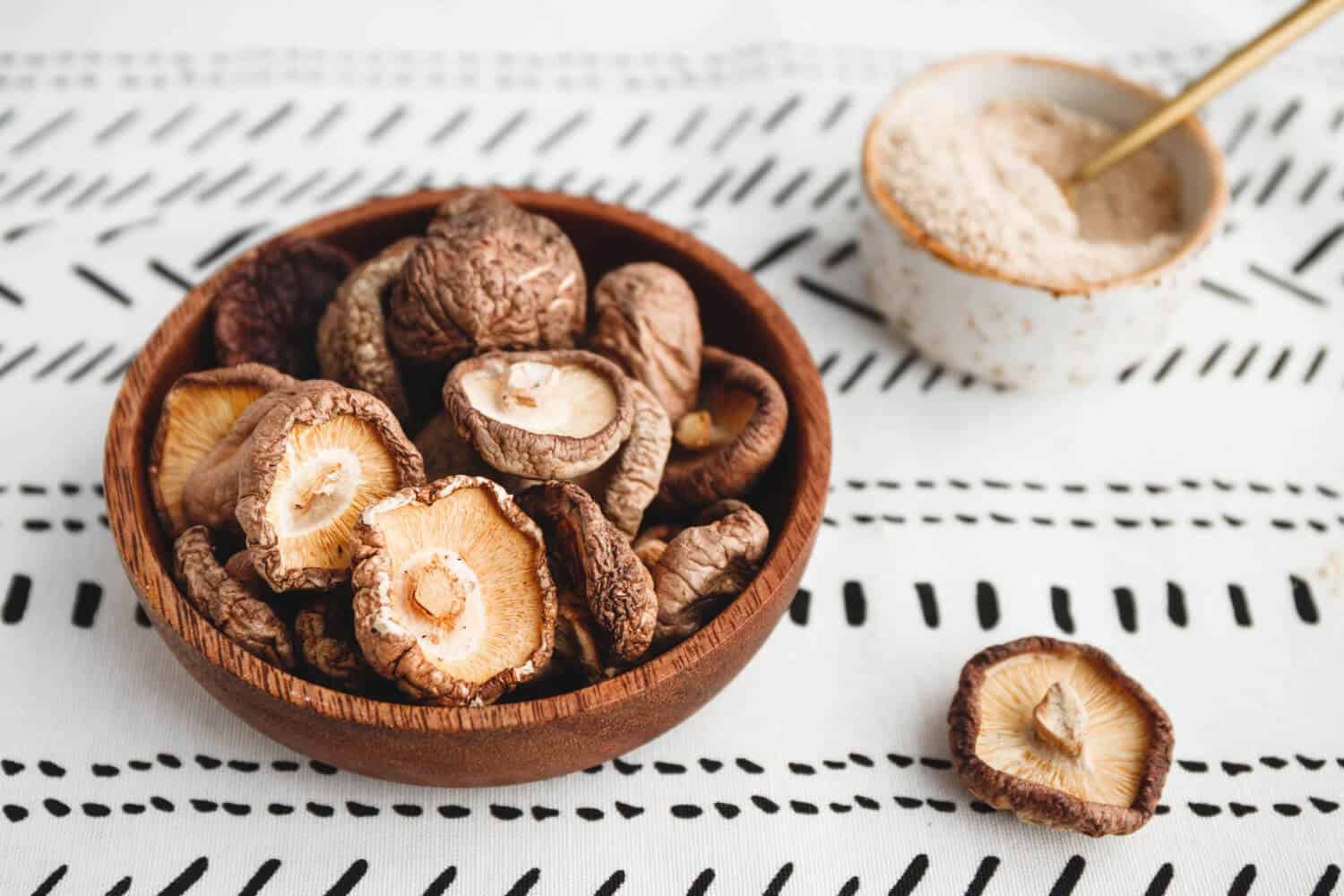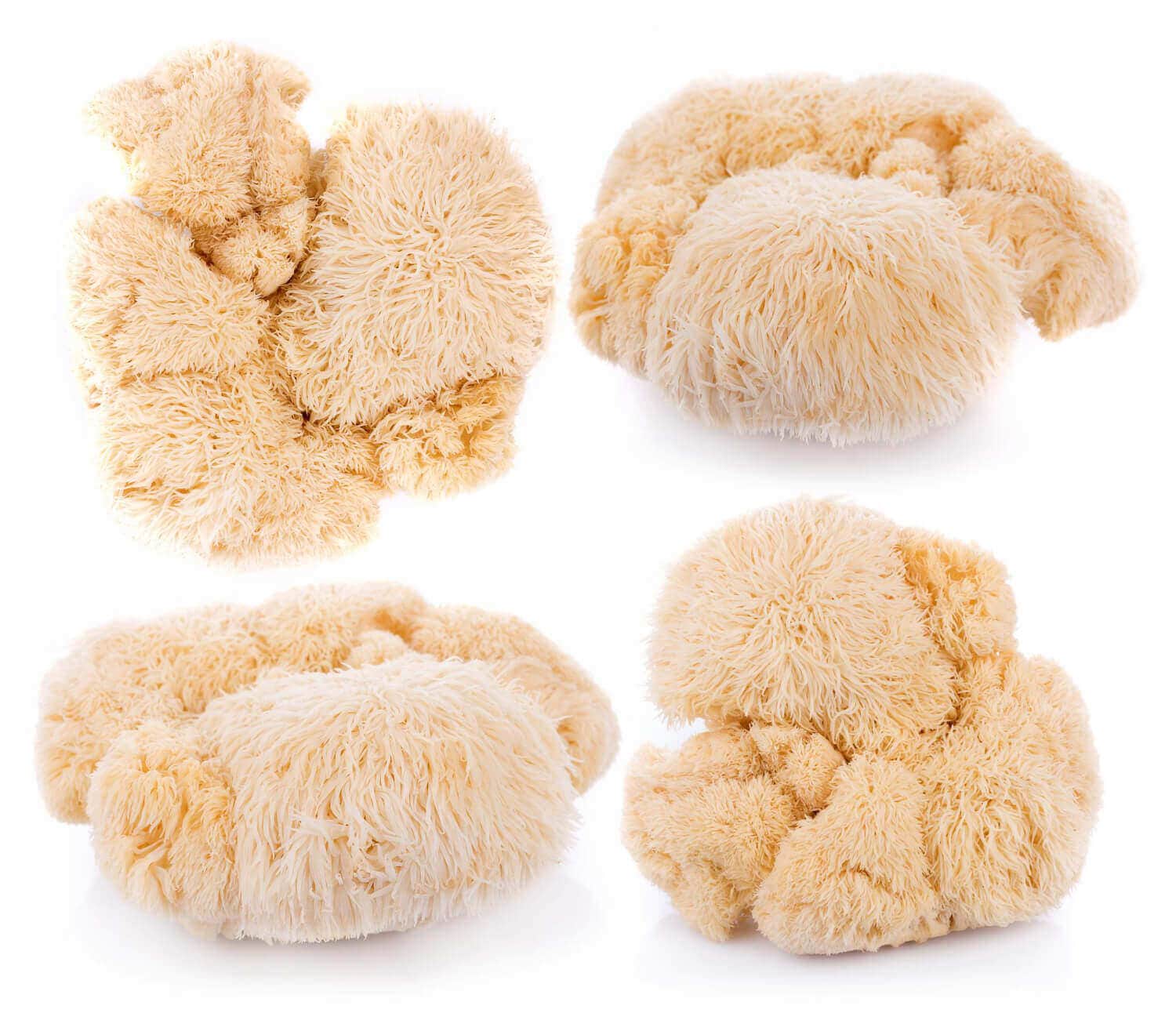As interest in natural health supplements rises, the turkey tail mushroom has become a focal point for its myriad of health benefits. Known scientifically as Trametes versicolor, this vibrant, multi-layered mushroom is celebrated not only for its unique appearance but also for its long-standing use in traditional medicine practices across the globe. A common inquiry among health enthusiasts and those mindful of their liver health is: Is turkey tail mushroom hard on the liver? This article delves into scientific research and expert opinions to address this question comprehensively.

Is Turkey Tail Mushroom Hard on the Liver?
The liver is essential for detoxification, metabolism, and digestion, making its health vital for overall wellbeing. When it comes to supplements and dietary choices, especially for those with existing liver issues, it’s crucial to consider their impact on liver health.
Turkey tail mushroom, known for its potential health benefits, is often questioned in terms of its effects on the liver. Contrary to concerns, turkey tail mushroom is not hard on the liver. In fact, it contains compounds that can potentially support liver health.
These include antioxidants that help reduce oxidative stress—a common factor in many liver ailments—and substances that enhance immune system function, which can help protect the liver from infection-related damage. Therefore, rather than being harmful, turkey tail mushroom may actually be beneficial for liver health when used appropriately.
Antioxidant Properties and Liver Health
Turkey tail mushroom is abundant in antioxidants, which play a vital role in protecting the body from oxidative stress associated with chronic liver diseases. The antioxidants found in turkey tail, such as polysaccharopeptides (PSK) and polysaccharide peptide (PSP), have shown promise in protecting liver cells and supporting liver function.
-
- Protection Against Oxidative Stress: Antioxidants in turkey tail help neutralize harmful free radicals, which are implicated in various liver diseases.
-
- Support for Liver Cell Health: By reducing oxidative stress, turkey tail can help maintain the integrity and function of liver cells.
Immune Modulation by Turkey Tail
Turkey tail mushroom’s ability to modulate the immune system is another aspect that potentially benefits liver health. It enhances the immune response and provides anti-inflammatory effects, which are crucial for managing inflammatory liver conditions.
-
- Enhanced Immune Defense: Boosting the immune system helps protect the liver from infections that could exacerbate liver issues.
-
- Anti-inflammatory Effects: Reducing inflammation in the liver can help manage symptoms associated with liver diseases.
Research Insights on Turkey Tail Mushroom and Liver Health
Research into turkey tail mushroom’s impact on liver health has provided promising results. For instance, studies indicate that turkey tail can improve liver enzyme levels, which are critical markers of liver health, in individuals suffering from specific liver ailments.
Research on Turkey Tail Mushroom and Chronic Hepatitis B
Chronic hepatitis B is a significant global health concern that can lead to severe liver conditions like cirrhosis and liver cancer. Managing liver enzyme levels is crucial for patients with hepatitis B to prevent liver damage. Research on turkey tail mushroom has shown promising results in this area.
A study investigating the effects of turkey tail mushroom on patients with chronic hepatitis B observed a notable reduction in liver enzyme levels. Elevated liver enzymes are typically indicators of inflammation or damage within the liver. By lowering these enzyme levels, turkey tail mushroom may help reduce the strain on the liver and mitigate the progression of liver disease.
This reduction in liver enzyme levels suggests that turkey tail mushroom could be a potential therapeutic supplement for those managing chronic hepatitis B. Its use might help in stabilizing liver function, which is crucial for preventing the advancement of the disease into more severe conditions. As such, turkey tail mushroom holds promise not only as a supportive treatment for improving liver health but also as a part of a broader strategy to manage and potentially ameliorate chronic hepatitis B.
For individuals considering turkey tail mushroom as a supplement for liver health, especially those with chronic hepatitis B, it is advisable to consult with healthcare professionals to ensure it is appropriate for their specific condition and used in a safe and effective manner.
Summary of Research on Turkey Tail Mushroom and Liver Health
| Study Focus | Outcome | Notes |
| Liver enzyme levels | Improvement in enzyme markers | Suggests protective effects on liver |
| Chronic hepatitis B | Reduction in liver enzyme levels | Indicates potential as a therapeutic supplement |
Experience Enhanced Rest with Mood Wellness Sweet Dreams Gummies
In the bustling world we navigate daily, finding products that genuinely enhance rest and relaxation can be a game-changer. Mood Wellness Turkey Tail Gummies offer a unique blend of natural ingredients designed to promote a calm mind and a restful night’s sleep. These gummies are infused with a powerful combination of CBD, CBN, turkey tail mushroom, and five other beneficial mushrooms, each selected for their natural properties that support overall wellness and sleep health.
Key Ingredients of Sweet Dreams Gummies:
-
- CBD (Cannabidiol): Known for its calming effects on the nervous system, CBD helps reduce stress and promote relaxation, making it easier to fall asleep and stay asleep.
-
- CBN (Cannabinol): Often used in sleep aids for its sedative effects, CBN can help improve sleep duration and quality.
-
- Turkey Tail Mushroom: This mushroom is celebrated not only for its immune-boosting effects but also for its potential to support liver health, contributing to overall bodily cleansing and better rest.
-
- Other Mushrooms: The formula includes Reishi, Lion’s Mane, Cordyceps, Chaga, and Shiitake mushrooms, each providing unique health benefits ranging from immune support to enhanced cognitive function and energy regulation.
These ingredients work synergistically to create a potent formula that not only supports physical health but also prepares the mind for a peaceful night’s sleep. Whether you’re struggling with sleep irregularities or simply seeking a more restful sleep experience, Mood Wellness Sweet Dreams Gummies could be the perfect addition to your nighttime routine.
The thoughtful combination of CBD, CBN, and a spectrum of mushrooms in these gummies makes them a standout product for those looking to enhance their sleep quality while nurturing their body’s overall health. Each ingredient has been carefully chosen to complement the others, resulting in a holistic supplement that supports not just sleep but also daily wellness.
Safety and Recommended Usage
While turkey tail mushroom offers numerous health benefits, it is generally safe when consumed in moderation. However, excessive intake can lead to possible side effects such as digestive discomfort or allergic reactions.
-
- Moderation is Key: Like any supplement, the benefits of turkey tail are best achieved when taken in appropriate amounts.
-
- Quality Matters: Ensuring the supplement comes from a reputable source is crucial to avoid contaminants that could harm liver health.
Conclusion: Is Turkey Tail Mushroom Hard on the Liver?
To conclude, turkey tail mushroom is not hard on the liver. Instead, it appears to support liver health through its antioxidant and immune-modulating properties.
Its protective effects on liver cells and potential to reduce liver enzyme levels point towards a beneficial role in liver disease management. However, it is essential to consume turkey tail mushroom in moderation and consult with healthcare professionals to ensure it complements your specific health needs safely and effectively.
Turkey tail mushroom stands out in the wellness community not only for its potential liver health benefits but also for its overall contributions to immune health and disease prevention. If you are considering turkey tail mushroom as part of your health regimen, it offers a promising addition, particularly for those focused on maintaining or improving liver health.







